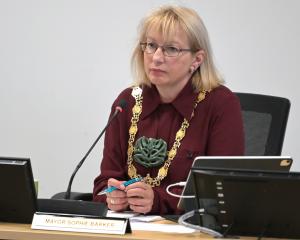Kiwis have always been good at keeping an eye on their neighbours.
Summer time is traditionally when we shine at this. Watering the neighbours’ garden, feeding their guinea pigs, collecting their mail, putting out the rubbish and recycling – it’s an important part of living in a community to give others peace of mind while they enjoy a holiday elsewhere.
Looking after the neighbours goes further than just those mechanical tasks when they are away, or benefiting from their loaded lemon tree or overgrown veggie garden when they are home.
In times of trouble — pandemics and lockdowns, and natural disasters — it is important to check in with those living close by. Elderly and perhaps infirm neighbours, or those on their own, need the company and support for their mental wellbeing.
The gargantuan eruption of Tongan volcano Hunga-Tonga-Hunga-Ha’apai on Saturday and its impacts across thousands of kilometres remind us how small the world is and of our obligations to our South Pacific neighbours.
The explosion from the submarine volcano blasted ash and rock high into the atmosphere, generated damaging tsunamis across the island nation and right around the Pacific Ocean, and unleashed shockwaves in the form of sonic booms and air pressure fluctuations which have been racing around the planet.
An awful veil of silence has been drawn across Tonga since, making it nigh-on impossible to know exactly the situation on the volcanic ash-strewn island kingdom, and who and where is in most urgent need of help.
Most cruelly, it is adding to the terrible, anxious wait for relatives and friends to find out how their loved ones are.
A little more is known of the state of things following a reconnaissance mission by a Royal New Zealand Air Force Orion on Monday. Damage is significant, according to Prime Minister Jacinda Ardern, and acting high commissioner Peter Lund says the capital Nuku’alofa looks like a "moonscape".
Water supplies are most likely contaminated and communications, other than with satellite phones, could be disrupted for weeks due to breaks in the submarine communications cable. Aid for the islands is now being prepared.
One of the remaining concerns is that the eruption may be far from over. Scientists tell us such eruptive episodes can vary in severity and frequency across many months.
Ironically, most eyes in New Zealand had been on the possible effects of former tropical cyclone Cody as it headed towards the east of the North Island with its strong winds and heavy swells.
But Cyclone Cody was totally upstaged by Hunga-Tonga-Hunga-Ha’apai. Some volcanologists believe its eight-minute eruption was the largest in 30 years, since Mt Pinatubo exploded in the Phlippines in 1991.
In fact some think it could have been as big as the momentous eruption of Krakatoa in 1883, based on the size of the blast, how widely it was heard around the Pacific, and the shockwaves which encircled the world.
It has certainly given the experts plenty to think and talk about, and study. The satellite images of the major eruption were unique, stunning and frightening. Also the tsunami generated by the explosion are rare in their genesis, their extent and height, spreading as far as the Pacific Northwest coast of North America and along the Chilean coast.
There is also the potential impact of this eruption, and any subsequent events, on the global and regional climate. Previous eruptions of this explosivity, such as Mt Pinatubo, Krakatoa and Mexico’s El Chichon, spewed enough ash and sulphur gas into the upper atmosphere to significantly cool the world’s climate for several years after.
Climatologists say it is too early to know if this eruption will do the same, but that probably more flare-ups would be needed to eject enough to do that. If that does happen, it might buy the world a few years or a decade to get its act together to mitigate global warming.
New Zealand has always enjoyed a very close relationship with South Pacific nations. This is another time where we need to show our leadership in helping out our neighbours.
Comments
Yes, as I look at all the problems we have here in new Zealand, child poverty, affordable housing and health care being top on my list, I feel a real sense of pride knowing our precious resources are going to our neighbors. YES, morally we have to provide assistance BUT, charity starts at home! Don't the people funding the government deserve more? I know the people who complain the loudest are the ones who pay the least, it would be nice for once to see kiwi's benefiting the most in the allocation of monies collected in taxes. This will just be another case of the government pounding it's chest while screeching how "NZ is punching above it's weight" at the expense of citizens her at home. There is only so much a small island nation like NZ can do given it's limited resources. Assistance should be our excess which the government constantly bleats "there is none". Sorry Tobe, kiwi's come first! Want to provide assistance? Stop reaching for my pockets! Start forking over your own money and resources!












